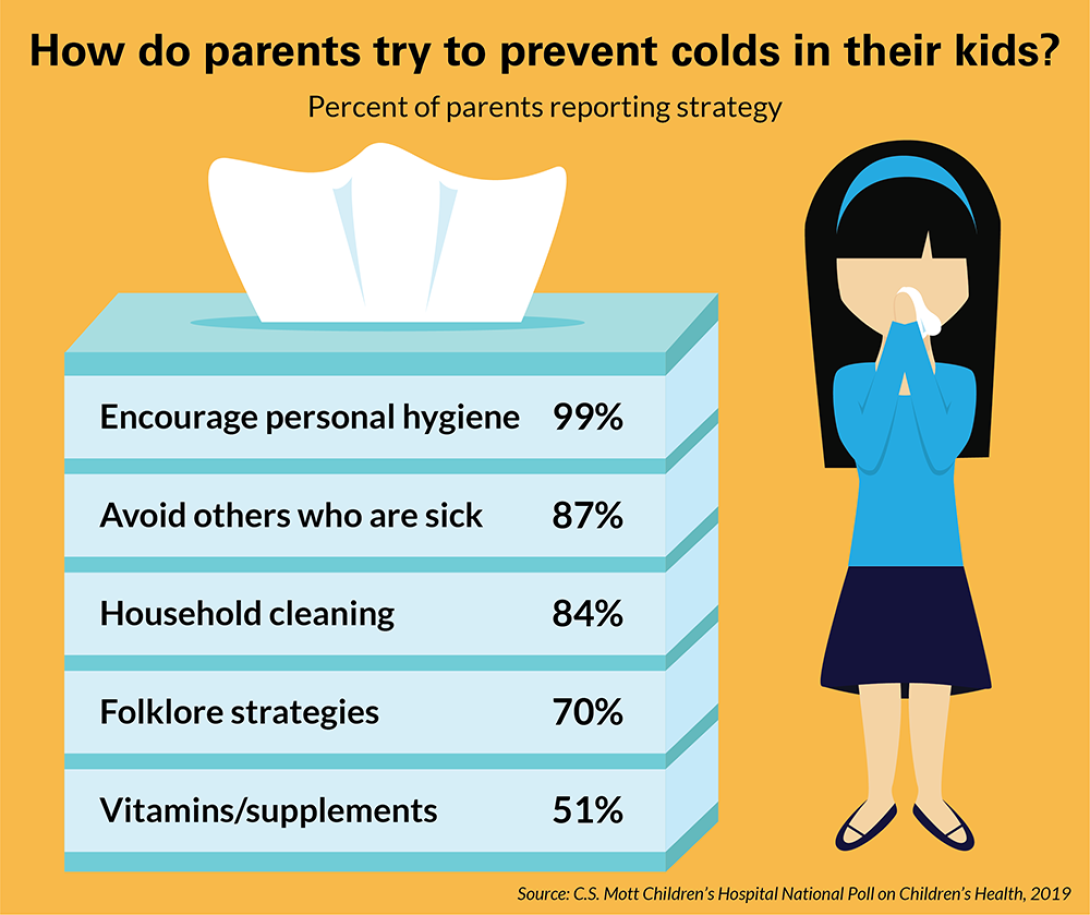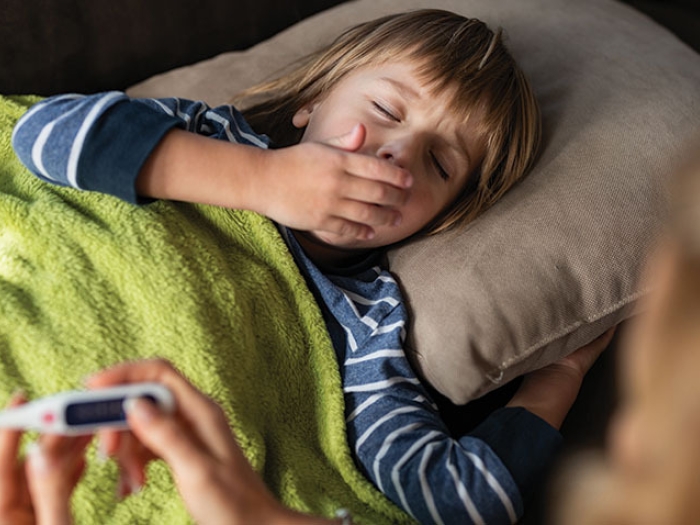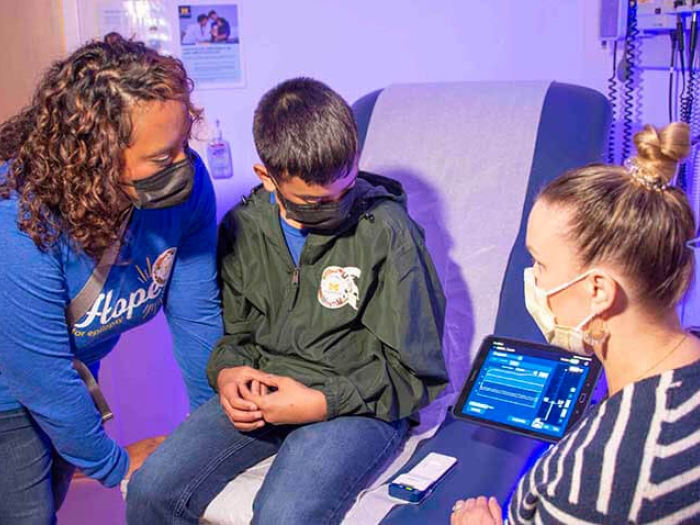A new Mott poll examines how parents help their kids avoid the virus. Learn more about prevention strategies that work.
7:00 AM
Author |

Although common, colds are no fun for children. Sniffles and coughs that indicate the virus has taken hold can affect a young person's sleep, mood and ability to participate in school and other activities.
LISTEN UP: Add the new Michigan Medicine News Break to your Alexa-enabled device, or subscribe to our daily audio updates on iTunes, Google Play and Stitcher.
And beyond getting more rest and fluids, "there isn't a lot we can do that's going to change the duration or symptoms of a cold," says Priyanka Rao, M.D., a pediatrician at University of Michigan C.S. Mott Children's Hospital.
"It's more about helping a child be comfortable so they can recover."
A new C.S. Mott Children's Hospital National Poll on Children's Health offers families a reminder about the importance of prevention. After all, the average child will experience three to six colds each year — with some lasting as long as two weeks.
Many parents still believe "folklore strategies" or use vitamins or supplements for cold prevention despite little or no evidence suggesting these types of methods actually help people avoid catching the cold, according to the poll report.
MORE FROM MICHIGAN: Sign up for our weekly newsletter
Colds are caused by viruses transmitted from person to person, usually via direct contact with airborne droplets or a surface those droplets have touched. Most kids fight off the virus unaided; they can stay in school if they don't have a fever.
Cold air can't give you a cold. You get it from being exposed to someone with the virus.Priyanka Rao, M.D.
Having a cold now and then is unavoidable, and the experience can help younger children build immunity.
But the nuisance doesn't have to occur in excess. "We don't realize how easy it is to catch a cold or how common they are," says Rao, who shared some simple tips to help families keep the illness at bay.
Preventing colds in children
Wash your hands often: Cold germs can linger on frequently touched surfaces: door handles, toys and your own hands. As such, "The biggest method of prevention is good hygiene," says Rao. Proper hand-washing with soap creates enough friction to get rid of most related germs.
Avoid others who are sick: Mucous droplets expelled by sneezing or coughing can easily infect others in close range. The Mott poll found that 64 percent of parents would ask a relative with a cold not to hug or kiss their child; 60 percent would cancel a play date if attendees are ill.
SEE ALSO: When Should I Take My Child to the Emergency Room?
Prevent cross-contamination: Young kids, as many parents know, are likely to put hands and fingers in their nose and mouth. Offer a firm reminder that doing so could make them sick. Another key strategy: Teach children not to share drinkware or utensils with each other.
Clean affected surfaces: To help keep germs off nightstands and coffee tables, among other places, tell your children to throw used tissues in the toilet or a trash can. Use bleach-based wipes to disinfect shared items, appliances and other surfaces, Rao suggests.
Skip the supplements: Just over half of respondents give their kids an over-the-counter vitamin or supplement — including vitamin C and multivitamins — to ward off colds. But there's no proof these products work, notes Rao. Nor are they federally regulated. A healthy diet and proper sleep can help a child's immune system perform at its best.
SEE ALSO: 6 Reasons Your Child Needs a Flu Shot Now
Ignore "folklore" advice: Nearly 3 in 4 parents told the Mott poll they adopt strategies such as telling their kids not to go outside with wet hair. Folklore advice has likely been passed down from past generations, before people knew that germs are the true culprit. Says Rao: "Cold air can't give you a cold. You get it from being exposed to someone with the virus."


Explore a variety of health care news & stories by visiting the Health Lab home page for more articles.

Department of Communication at Michigan Medicine
Want top health & research news weekly? Sign up for Health Lab’s newsletters today!





